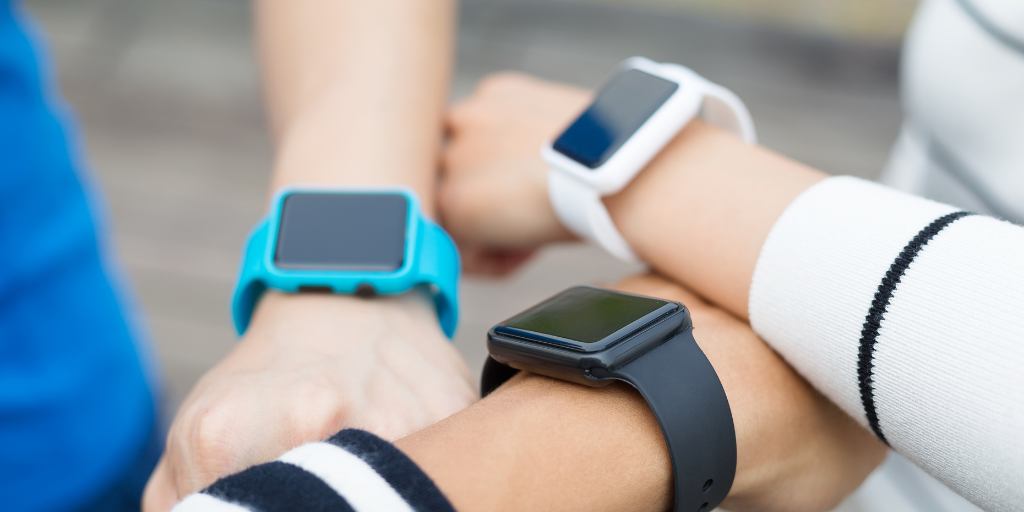
A big topic of conversation lately in my tween-parent cohort is how to delay smartphones as long as possible. Many parents turn to smart watches to fill important communication needs before their kids are ready for phones. But are smart watches safe for kids?
Let’s examine the safety risks of smart watches, which devices have the best parental controls, and the steps parents can take to make smart watches safer for their kids.
Smart watches can be a great first device for kids who aren’t ready for a smartphone. Here are a few reasons parents choose them:
While smart watches are generally safer than smartphones, they’re not risk-free. Here are safety considerations parents need to know:
If you give your child unrestricted access to text on their smart watch, they could easily find themselves talking to unapproved contacts, potentially exposing them to predators.
Batteries die, cell service gets patchy, and GPS isn’t always accurate. If you rely solely on your child’s watch to keep them safe, they’re at risk if the technology fails.
Texting in class is bad news, but texting while crossing the street? That could be deadly. Smart watches are much less distracting than phones, but that doesn’t mean kids can’t get lost in them.
Some smart watches marketed toward kids aren’t properly encrypted, leaving them open to digital attacks. Less reputable brands have had serious issues, like allowing hackers to send messages that appeared to come from a child’s parent, eavesdropping on kids, and intercepting parent-child communication.
The safety risks from a smart watch can largely be controlled with these safety measures:
1. Choose a reputable brand. Look for smart watches that have built-in parental controls and secure encryption. Avoid knockoffs or brands without clear privacy policies.
2. Turn on parental controls. Enable features that set communication limits, manage screen time, and block unknown messages.
3. Set non-digital safety boundaries. Establish rules for how far your child can go alone, who they can contact, and what to do if their watch stops working.
4. Create a digital device contract. Outline when and how your child can use their smart watch, like no texting at school or after bedtime.
5. Use a monitoring app like BrightCanary. If your child uses an Apple Watch, BrightCanary’s Text Message Plus plan lets you monitor texts (including deleted ones) and get alerts for concerning content. You can also view full transcripts or use AI summaries to understand what’s happening at a glance.
When selecting a smart watch for your child, robust parental controls should be at the top of the list. Here are our top recommendations:
Apple Watches are a great option for kids. You don’t need an iPhone to use one, they have excellent built-in parental controls, and BrightCanary offers unparalleled monitoring on Apple devices.
It’s vital that you set up Apple Family Sharing to enable parental controls, though. If you don’t take this step, your child will have unrestricted cellular service, which means they can be contacted by anyone, including strangers.
The Gabb Watch offers a ton of parental controls, like the ability to manage all contacts. It also has reliable location tracking and is intuitive for users (and their parents).
The GPS tracking is accurate, and parents can set up “safe zones,” so they receive an alert whenever their child enters or exits those areas.
The parental controls on the Fitbit Google Ace LTE are managed through Google Family Link and offer strict options like required parental consent to add all contacts.
Contacts are limited to 20, though, and adding friends can be glitchy, so this watch may be better for younger kids who mostly need to reach parents and other caregivers.
Yes. When properly set up, smart watches can be a safe option for kids who need a device but aren’t ready for a smartphone just yet.
There are some risks to smart watches if they aren’t used properly, such as exposing kids to contact from strangers. That’s why it’s important to select a watch with strong encryption and robust parental controls and teach your child to use it safely and responsibly.
For families opting to give their child an Apple Watch, BrightCanary helps you monitor all the texts they send and receive on their smart watch (including deleted messages) and sends you alerts if they encounter anything alarming. Download the app and get started today.
Most experts recommend introducing a smart watch between ages 8 and 12, when kids start gaining independence but aren’t ready for a smartphone.
Generally, yes — smart watches limit exposure to the internet and social media, reducing risks like cyberbullying or online predators.
Many models allow limited texting or voice messaging, but parents can usually control who the child can contact.
Turn on parental controls, limit contacts, discuss safety rules, and use a monitoring app like BrightCanary for added visibility.
The Apple Watch and Gabb Watch 3e are top options for safety, reliability, and parental control features.